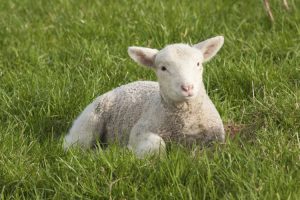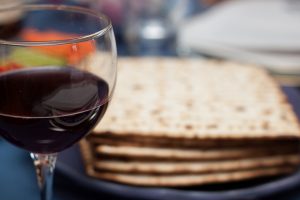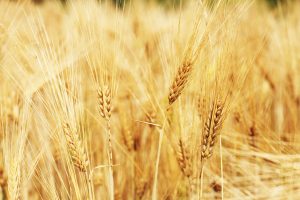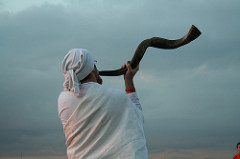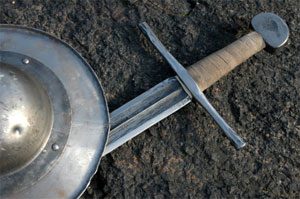See the names of the months and their position according to the biblical pre- and post-Babylonian era with the sequence reflected according to scripture and not the secular construct.
Passover
First month Nisan (Abib)
April 14 (at evening, April 13 a righteous convocation)
Commemorating the final plague on Mizraim (Egypt; land of bondage), just before YHWH delivered Israel from slavery, every firstborn in Mizraim died, but YHWH “passed over” the Israelite houses because they smeared the blood of the sacrificial passover lamb upon the lintel and post of the door.
YHWH the Son kept the passover with his disciples before he sacrificed his life; he is also described as the passover and the Lamb of YHWH.
Feast of
Unleavened Bread
First month Nisan (Abib)
April 15 thru April 21 (at evening, April 14 until evening, April 20)
April 15 (at evening, April 14, a righteous convocation)
April 21 (at evening, April 20, a righteous convocation)
A seven day Israelite festival which follows immediately after passover. It commemorates the haste in which the people of YHWH, lead by Moses, made their exodus flight out of Mizraim (Egypt; land of bondage) and not having time to put leaven in their bread, thus during the seven days, a person abstain from foods containing a leavening agent.
Feast of Weeks
First/Third month Nisan (Abib)/Sivan
April 22 thru June 10 (at evening, April 21 until evening, June 9)
June 10 (at evening, June 9 a righteous convocation)
An Israelite festival (also called Pentecost: Greek; feast of harvest; day of firstfruits) celebrated seven weeks after the feast of unleavened bread, or fifty days (the period between the barley harvest to the wheat harvest). It is a feast of thanksgiving for the completion of the harvest season.
Memorial of Blowing of Trumpets
The seventh month Tishri (Ethanim)
October 1 (at evening, September 30 a righteous convocation)
Also called feast of trumpets. The sounding of the trumpets (shophar; shofar; ram’s horn) is used to call the congregation of Israel to gather together. The instrument was blown to signal an announcement or alarm during times of peace and war, such as, the Jubilee Year (Lev. 25:8-13), Sabbaths, and the fall of the city of Jerico (Jos. 9).
Day of Atonement
Seventh month Tishri (Ethanim)
October 10 (at evening, October 9 until evening, October 10)
October 10 (at evening, October 9 a righteous convocation)
An annual fast day of the Israelites. Ordained by YHWH in the torah instructions as a day to humble oneself and repentance of transgressions. A person abstains from food and drink from evening til evening.
Atonement for idolatry and disobedience against YHWH spans both Testaments, pointing to the substitutionary sacrifice of animals and then ultimately YHWH the Son offering his body in place of the wrath of YHWH.
Feast of Tabernacles
Seventh month Tishri (Ethanim)
October 15 thru October 21 (at evening, October 14 until evening, October 20)
October 15 (at evening, October 14, a righteous convocation)
October 22 (at evening, October 21, a righteous convocation)
An Israelite festival (also called Feast of Booths; Feast of Ingathering) held at the end of the autumn harvest. It celebrates a renewal of the covenant after YHWH liberated the children of Israel from their captivity in Egypt (Mizraim; land of bondage) through words and plagues delivered by Moses and recalls wandering in the wilderness forty years, dwelling in booths (tabernacles), until the rebellious against YHWH were destroyed.
Feast of Dedication
Ninth month Kislev (Chislev, Casleu)
December 25 thru January 1 (at evening, December 24 until evening, December 31) December 25 (at evening, December 24, a righteous convocation) January 1 (at evening, December 31, a righteous convocation)
An eight day Israelite festival (also called Feast of Lights; Hanukkah; Chanukah) observing the victories of Judas Maccabbeus (the southern kingdom; Judah) who lead the battle against Idumea (Esau) and the purification and rededication of the temple after Antiochus Epiphanes profaned the temple with paganism.
Purim
Twelfth month Adar
March 14 thru March 15 (at evening, March 13 until evening, March 14)
An Israelite festival celebrating the deliverance from massacre. Esther the queen and her cousin Mordecai (the southern kingdom; a Benjamite) thwarted Haman the Agagite (Amalek; Esau), Judah’s enemy, attempt to annihilate all Judah. Haman and his sons were hanged on the gallows that he planned for Mordecai. Because Esther found favor in the sight of king Ahasuerus (Media and Persia), she decreed the destruction of thousands of Judah’s enemies, with the sword (under the command of Mordecai), that was meant for them in all the provinces of the king, from India unto Ethiopia.
Purim (Persian: “lots”; poo-rim, poo-reem), plural for Pur, “lot”. Thus, the festival is named Purim, because Haman cast Pur, the lot, to determine when to execute his plan to destroy Judah.
Passover
First month Nisan (Abib)
April 14 (at evening, April 13 a righteous convocation)
Commemorating the final plague on Mizraim (Egypt; land of bondage), just before YHWH delivered Israel from slavery, every firstborn in Mizraim died, but YHWH “passed over” the Israelite houses because they smeared the blood of the sacrificial passover lamb upon the lintel and post of the door.
YHWH the Son kept the passover with his disciples before he sacrificed his life; he is also described as the passover and the Lamb of YHWH.
Feast of
Unleavened Bread
First month Nisan (Abib)
April 15 thru April 21 (at evening, April 14 until evening, April 20)
April 15 (at evening, April 14, a righteous convocation)
April 21 (at evening, April 20, a righteous convocation)
A seven day Israelite festival which follows immediately after passover. It commemorates the haste in which the people of YHWH, lead by Moses, made their exodus flight out of Mizraim (Egypt; land of bondage) and not having time to put leaven in their bread, thus during the seven days, a person abstain from foods containing a leavening agent.

